India: up-and-down on Pakistan
The U.S., post-9/11, has made large strides with their homeland security. In contrast, what has India done to counter terrorism? How have Indo-Pakistan relations unfolded?
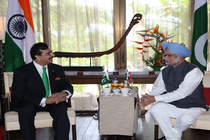 Courtesy: Ministry of External Affairs, Government of India
Courtesy: Ministry of External Affairs, Government of India
The U.S., post-9/11, has made large strides with their homeland security. In contrast, what has India done to counter terrorism? How have Indo-Pakistan relations unfolded?
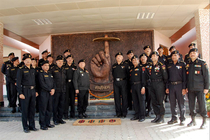 Courtesy: National Security GuardsGovernment of India
Courtesy: National Security GuardsGovernment of India
Three years after the attacks on Mumbai on 26/11, we have to ask ourselves: are we any better off ? What lessons did we learn ? Can we prevent an attack or cope with it better today ?
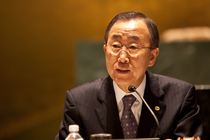 Courtesy: Broddi SigurðarsonFlickr
Courtesy: Broddi SigurðarsonFlickr
Today, at the national and regional level, large loopholes still exist in the security system. On the international front, however, there have been a lot more initiatives, yet the apex body of the UN remained silent post-26/11. Were they justified in holding back?
 Courtesy: Apoorva Guptay/Flickr
Courtesy: Apoorva Guptay/Flickr
Ideological differences have spawned innumerable terrorist groups around the world, but historical records show that dissidence does have a shelf-life. Can India look forward to a future free of terrorism? Only if we can craft a consistent policy on Pakistan and depoliticise our internal processes of investigation
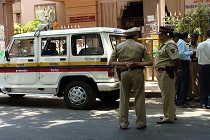 Courtesy: Ben Sutherland/ Flickr
Courtesy: Ben Sutherland/ Flickr
Far from being poles apart, large corporations and Indian law enforcement face similar organisational challenges. Both strive for greater coordination, integration and collaboration. But how can we design an efficient system? What are the structural solutions that need to be implemented?
 Courtesy:
Courtesy:
Brigadier Xerxes Adrianwalla takes a hard look at the security response to 26/11 and outlines the urgent systemic changes needed in our approach to combating terrorism.
 Courtesy: eutrophication&hypoxia/Flickr
Courtesy: eutrophication&hypoxia/Flickr
Mumbai is surrounded on all sides by water and is just as vulnerable to attack by sea as it was on 26/11. Maharashtra needs formalised maritime governance - a coordination of all maritime activity with a constant, collective awareness of the surrounding maritime domain.
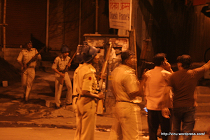 Courtesy: Vinu/Flickr
Courtesy: Vinu/Flickr
An active, vigilant citizenry is a vital partner in the fight against terrorism. However, Dr. Jayaprakash Narayan, founder of the Lok Satta Party, argues that this can only be possible with a new legal framework that emphasises efficiency and inclusiveness.
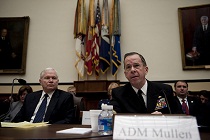 Courtesy: Chairman of the Joint Chiefs of Staff/Flickr
Courtesy: Chairman of the Joint Chiefs of Staff/Flickr
The 'double-dealing' of the U.S. and Pakistani army - all with the ambition of military dominance - has significantly aided various terrorist groups. After 26/11, there is no place to hide for the Mike Mullens and countless others who have been apologists for the Pakistan army and the state it controls.
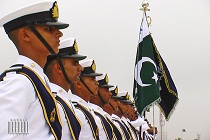 Courtesy: Kash_if/Flickr
Courtesy: Kash_if/Flickr
In the aftermath of the Mumbai attacks, the Pakstani deep state role was highlighted. The U.S. has come to realise this reality too. Bilateral information sharing could prove to be vital to combat terrorism - both regionally and globally.